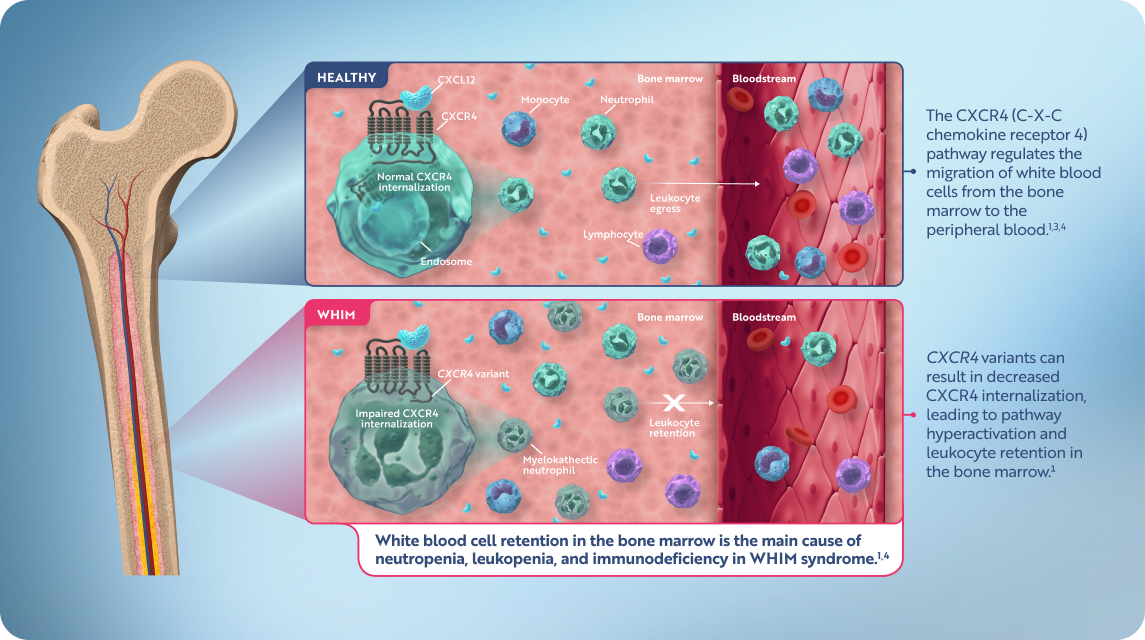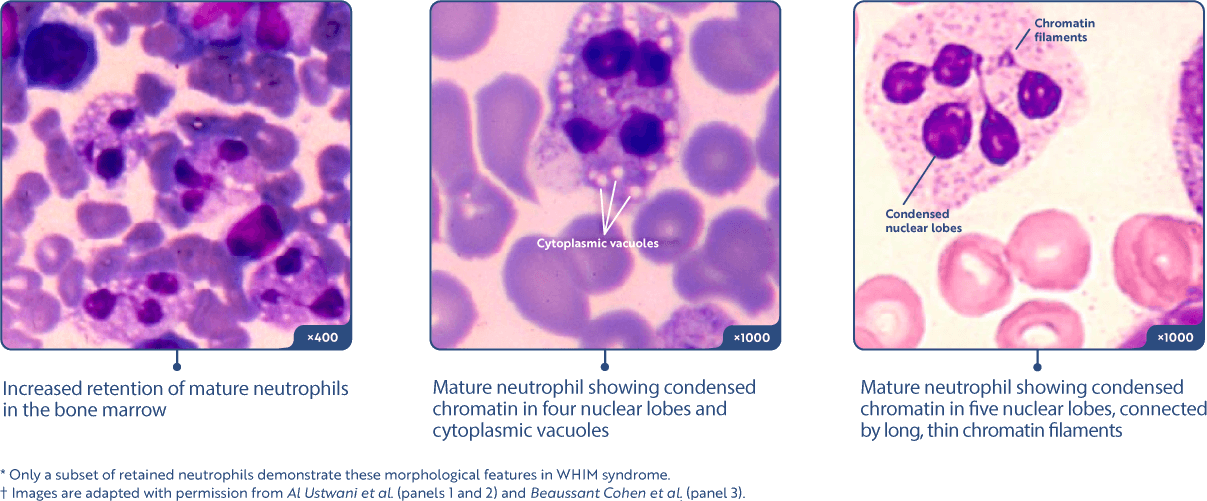Pathogenic variants of the CXCR4 gene can result in the retention of white blood cells in the bone marrow.1


Myelokathexis, the abnormal retention of neutrophils in the bone marrow, is a hallmark feature of WHIM syndrome, present in ~100% of cases. It is detected by bone marrow biopsy but can be challenging to identify and may be missed on initial biopsy evaluation.1,4-7
Bone Marrow Aspirates of WHIM Syndrome Patients Showing Key Pathological Features of Myelokathexis*,†,3,7


Did You Know?
The understanding of CXCR4 variants continues to evolve.
